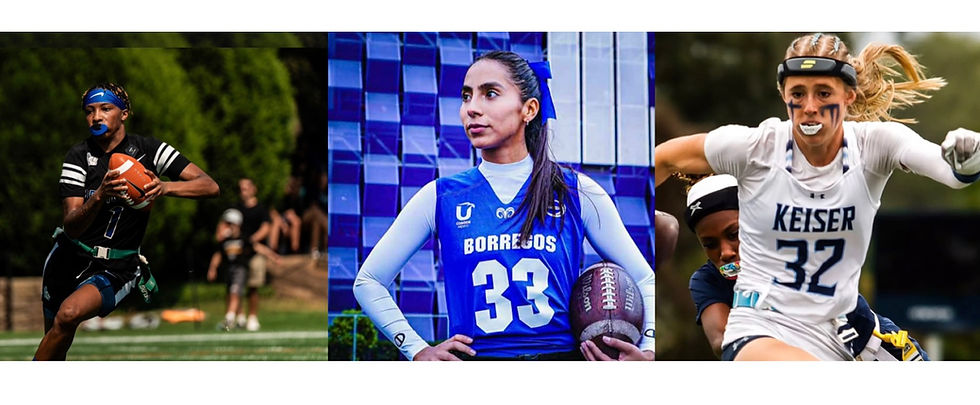Draft Day: The Issue with Anonymous Sources and Draft Value
- Dustin Pokorny
- Jan 23, 2023
- 4 min read

The iconic chime. The players hugging the commissioner. The NFL draft is an event where athletes' dreams come true as a culmination of their hard work in the weight room and on the field has led to them almost instantly becoming millionaires.
However, there is a dark side to what should be a pure beautiful moment. In 2005, Aaron Rodgers was one of six athletes invited to attend the draft. Rodgers had to sit and wait as 23 players were selected before him, including the 5 other athletes that attended the draft, before the Packers finally selected him at pick number 24. While embarrassing for Rodgers, no fault can be assigned with teams either choosing other quarterbacks or not needing to draft one being the main reasoning behind his fall in the draft.
In 2016, Laremy Tunsil was projected to be the third pick of the draft. However, before the draft began, a video was posted on Twitter from Tunsil’s account which showed Tunsil wearing a mask that had what appeared to be a marijuana pipe with smoke attached to it. The video was quickly deleted but the damage had been done, causing Tunsil to fall to the 13th pick of the draft. Tunsil claimed his account was hacked, but seeing as the video was real, Tunsil could only have considered a civil suit against the hacker if the hacker was found. As of today, there has been no evidence solidifying anyone as the hacker, thus no lawsuit.
Far more common than these situations is the occurrence of anonymous sources stating issues with players during the draft process. For instance, there are current reports from Todd McShay regarding the projected top 3 selection in the upcoming NFL draft Jalen Carter. McShay has been reporting that there are character concerns with the Georgia defensive tackle but has not cited any examples or individuals who have this opinion.
The issue for players like Carter is that these allegations can lead to teams passing on him in the draft. Teams commit a lot of resources to each draft pick and have limited selections, so they may avoid a player for issues that do not even have a factual basis because of the value of each pick.
On the other side, players lose millions of dollars for each pick they do not get chosen. Using the figures from spottrac.com, the difference between picks 1 and 2 in the 2022 draft was a contract worth $1,861,979 less. Even more shocking, the difference between pick 1 and 10 was a contract worth $18,873,693 less.
The easy argument here is to point out that players like Carter will be making at least 20 million once drafted, so some may say that complaining about this is just complaining about a couple of million from someone who is already becoming a multi-millionaire. First, players come from diverse backgrounds of financial stability, and these contracts are given out on a scheduled system of payments. This means that each paycheck will be smaller and many of these players want every dollar possible to help their families or those who helped them along the way. Second, the main issue here is the morals behind it. Why should we allow unnamed “sources” to tank players’ draft stocks for no substantial reason other than creating controversy during the draft? Where a player is drafted is not just a number, but a brighter future with financial stability.
Can the player take legal action through a defamation suit? The players have multiple things working against them. First, players who are good enough to be drafted will be considered public figures, who are held to a different standard in defamation lawsuits. Courts treat public figures differently as they are individuals who seek attention through the media and thus have access to said media, allowing them to better control the narrative. Further, public figures must prove that there was actual malice from the individual who made these comments about them. This is oftentimes very difficult to prove as the confidential sources who make these comments are often scouts, general managers, or teammates who could claim they are simply sharing their truthful opinion about the player and lack malice.
If a player tries to meet this standard through a defamation lawsuit, confidentiality will further make the case difficult. Today, there are 49 states who have enacted shield laws. Shield laws generally require the side seeking the journalist to testify and reveal their sources to prove that the information sought is “relevant, material, and unobtainable from an alternative source.” While most likely not the most difficult bar for a player seeking information from a direct quote from a journalist's confidential source, it is another hoop to jump through.
Overall, a defamation suit is unlikely to prove worthwhile as a result of the ease of denial with the source being confidential. Further, these comments could be loosely based on fact, ruining the case. For instance, in the Carter incident, the confidential source could use one minor blowup at practice as evidence of “character concerns.” Unfortunately for players like Carter, they will have to outwork these kinds of comments rather than find success within a courtroom.
Dustin Pokorny is a 1L student and representative of the Sports Law Society at the University of Southern California Gould School of Law in Los Angeles. He can be found on LinkedIn at https://www.linkedin.com/in/dustin-pokorny-301459172/.






